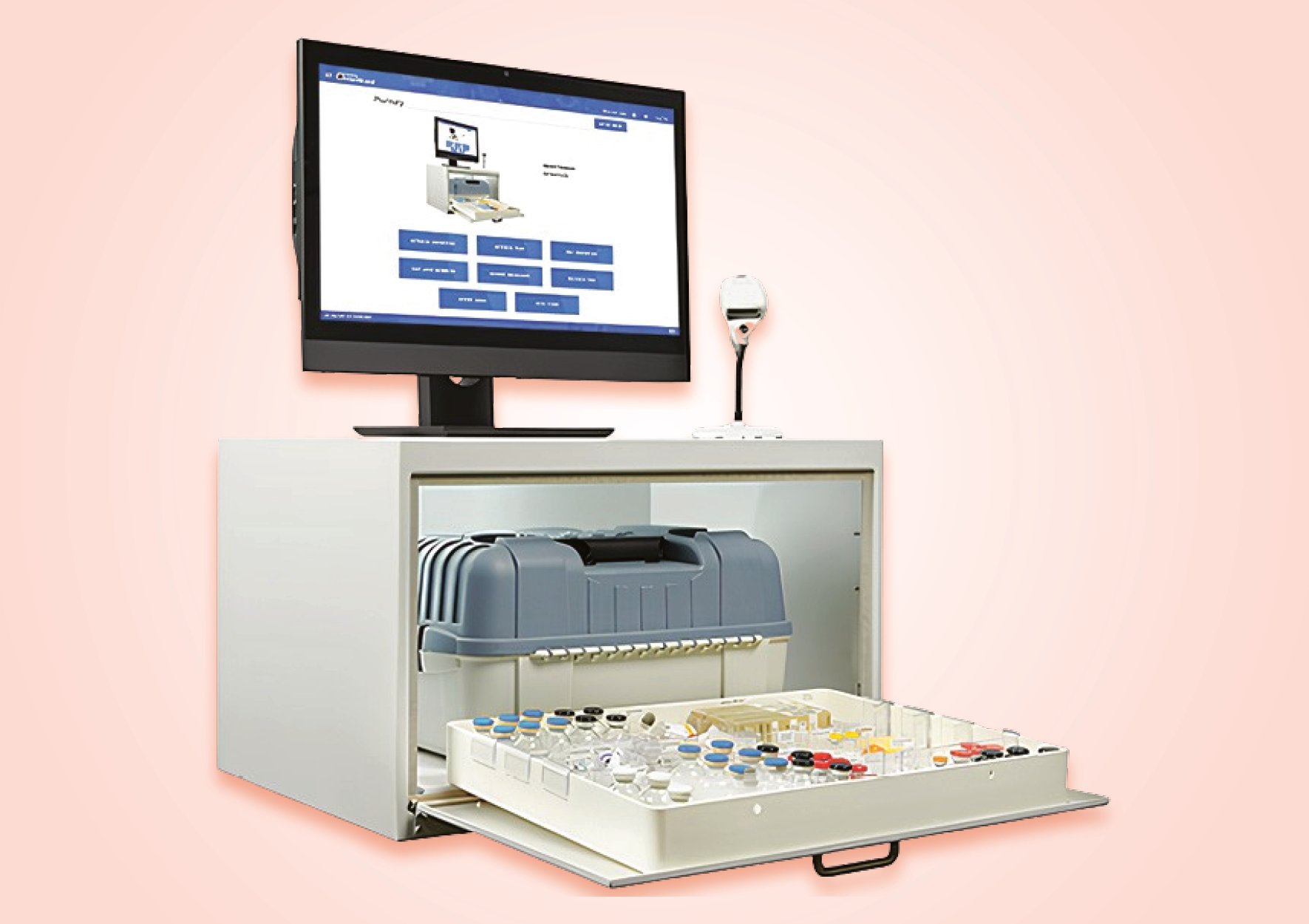- Show Menu
- Contact Us
- FAQs
- Reader Service
- Survey Data
- Survey Winners
- Testimonials
- Upcoming Events
- Webinars
- White Papers
Utilize Bispecific Antibody Therapy in a Community Setting

Bispecific monoclonal antibodies (BsAbs) with T-cell engaging activity are a new class of immunotherapeutics with surprising efficacy in hematologic malignancies. They enhance the patient’s immune response by physically linking tumor antigen recognition to T-cell activation pathways, ultimately stimulating T-cell killing and cytokine production. These monoclonal antibodies share similar toxicities with other T-cell engaging therapies; for example, chimeric antigen receptor (CAR) T-cells, including cytokine release syndrome (CRS) and immune effector cell associated neurotoxicity (ICANs) with varying incidence and severity. Although a unified recognition and grading scheme has been developed for CRS and ICANS, the management of toxicities and the impact that immunosuppression has on efficacy is less well understood.
While 80% to 85% of cancer patients are treated at community-based clinical practices, most clinical development of immune effector therapies is conducted at academic medical centers. The current workforce of community medical oncology comprises highly capable physicians with training, experience, and expertise in immune effector therapies, but many have limited access to these new and emerging therapies.1 At Baptist Health Lexington (see the SIDEBAR), expanding access to cutting edge treatments is a key priority. As such, we designed a BsAbs treatment program for the community setting. There are 9 key steps to developing an in-house program to provide patients with BsAbs in the community setting.
Launching a BsAbs Program
Identify Multidisciplinary Program Champions
Community hospitals should determine the members of the BsAbs team early on. Designate one physician to be the immune effector therapy champion, with a second physician serving as the associate champion. Additionally, assign representative pharmacists, physician extenders, and nurses as department champions. At Baptist Health Lexington, our champion team consists of a medical oncologist, the executive director of the cancer center, an oncology clinical nurse specialist, and a clinical oncology pharmacy specialist.
Champion clinical personnel should be thoroughly trained on the medication indications, as well as the recognition and management of adverse reactions associated with immune effector therapies. Furthermore, they should be easily reachable as appropriate for patient management. Champion clinical personnel will be responsible for the implementation of current management guidelines. At our institution, we chose to launch the program with the implementation of two specific BsAbs, teclistamab-cqyv for multiple myeloma and epcoritamab-bysp for lymphoma. These two drugs were chosen because of the relative CRS risk and availability of a J-code. Limiting the number of options at the outset simplified the process of training personnel and allowed for a more manageable initiation process.
Financial Considerations
Discuss all financial considerations with the billing department. Task the billing department with creating a financial analysis summary addressing different administration scenarios for the utilization of the BsAbs selected. The cost comparison should incorporate the projected costs and revenue for each site where the BsAbs would be administered to the patient (ie, the outpatient infusion center, the observation unit, and inpatient units, including general oncology and intensive care). Present this information to the hospital’s leadership to provide an overview of the proposed program.
Formulary Additions
Task the clinical oncology pharmacy specialist with presenting a monograph for each of the BsAbs under consideration to the hospital’s pharmacy and therapeutics (P&T) committee (see the TABLE). This should include detailed information on the clinical efficacy, safety profile, administration and dosing, and cost analysis. Both of the BsAb monographs presented at our institution were approved by the committee and recommended for addition to the institutional formulary with their use restricted to patients treated in the outpatient infusion center with the exception of the recommended hospitalization time frame by the package insert or as deemed necessary. The recommendation also required that appropriate insurance pre-authorization be obtained prior to administering the BsAb, and the agent must be prescribed by a medical oncologist or designated representative.

Click here to view a larger version of this TABLE.
Policy Creation
The oncology clinical nurse specialist and the clinical oncology pharmacy specialist are responsible for creating the BsAbs use policies. The policies outline staff education and training, patient education and consent process, risk evaluation and mitigation strategy (REMS) program, appropriate areas of administration, and identification and management of CRS and ICANS. The policies undergo review and approval by the physician champion, then the policies are presented to the cancer committee and medical executive committee for final approval.
REMS Registration and Compliance
For several BsAbs currently on the market, the prescribing institution is required to register their specific REMS program due to the increased risk of CRS and ICANS with these products. Within some REMS programs the prescriber must be certified by the program, and the pharmacies and the healthcare settings involved must enroll in the REMS program. At our institution, this process and the requisite record keeping are managed by the clinical oncology pharmacy specialist and infusion center pharmacy manager.
Staff Education
Key to a successful program are early clinical recognition of adverse reactions and a timely response. These considerations must be a primary focus of staff education and be incorporated into the patient workflow. Nurses are educated by the oncology clinical nurse specialist. Nursing units requiring education include the outpatient infusion center, inpatient oncology, medical oncology clinic (RN and APRN), intensive care, and the emergency department. Education and competency are evaluated on an annual basis and upon staff onboarding.
Physician education encompasses medical oncologists, hospitalists, intensivists, and emergency department physicians and is completed by the physician champion. Oncology-specific and inpatient pharmacists are educated by a pharmacy clinical coordinator.
EMR Development
The champion team and the electronic medical record (EMR) analysts need to coordinate to ensure the necessary components are configured in the EMR. Processes for prescribing, administration, and management of BsAbs should be as clear and direct as possible. Our team elected to develop pre-populated treatment plans built into the EMR for both of the BsAbs. These builds included labs, monitoring parameters, medication details, and additional provider and nursing communications.
Including a flowsheet in the EMR for nursing staff can help nurses appropriately determine the grading of CRS and ICANS. Nurses can use the flowsheet to document signs and symptoms of CRS/ICANS and then populate the grading.
Additionally, it is important to create CRS and ICANS order sets for physician use. By reviewing clinical assessments and nursing documentation, physicians can order appropriate medications and nursing interventions based on grading.
Patient Education Plan
It is important to ensure the patient is thoroughly educated as an outpatient prior to starting on a BsAbs. At Baptist Health, the medical oncologist provides the initial education during the clinic visit, and the clinical oncology pharmacy specialist coordinates a separate 1-hour appointment to review the education in detail with the patient and caregiver(s). The specific materials used during education and the written materials provided to the patient are determined prior to the first education session. The champion team vets the education materials and confirms that similar education is given by each provider who interacts with the patient. The champion team also determines the process to follow if a patient needs immediate assistance. This information, including the education materials and patient assistance process, is provided by the pharmacists during the patient education session.
Support Services for Admitted Patients
The champion team made the recommendation that the BsAbs be given as planned administrations, preferably during the work week, to allow for more staff to be available to provide oversight during administration.
Conclusion
Looking ahead, we plan to measure the success of this program by monitoring patient outcomes, efficiency of identifying and treating adverse effects promptly, and barriers to the patient or multidisciplinary team. More products may be added to the BsAbs program once we can measure success of the program.
Our BsAbs program benefits patients in a community setting. With our program, Baptist Health Lexington will be one of the only community hospitals in the region to offer a BsAbs program ensuring our patients receive cutting edge treatment closer to home and without a referral to an academic medical center.
References
- Tucker TC, Charlton ME, Schroeder MC, et al. Improving the quality of cancer care in community hospitals. Ann Surg Oncol. 2021;28(2):632-638.
- Lunsumio. Package insert. Genentech, Inc.; 2022.
- Columvi. Package insert. Genentech, Inc.; 2023.
- Epkinly. Package insert. Genmab US, Inc.; 2023.
- Tecvayli. Package insert. Janssen Biotech, Inc.; 2023.
- Talvey. Package insert. Janssen Biotech, Inc.; 2023.
- Elrexfio. Package insert. Pfizer Labs; 2023.

Megan May, PharmD, BCOP, FHOPA, FAPO is the clinical oncology pharmacy specialist at Baptist Health Lexington in Lexington, Kentucky. She received her doctor of pharmacy from Samford University’s McWhorter School of Pharmacy in Birmingham, Alabama and completed a pharmacy practice residency at Shands Jacksonville Medical Center and a hematology/oncology pharmacy residency at the Medical University of South Carolina.

Kiera Hobbs, MSN, APRN, AGCNS-BC, OCN is the oncology clinical nurse specialist at Baptist Health Lexington. She received her bachelor of science in nursing from the University of Kentucky and her master of science in nursing from Loyola University Chicago.
SIDEBAR
About Baptist Health Lexington
Baptist Health Lexington, a 434-bed community hospital in Lexington, Kentucky, serves as a major medical research and education center for Central and Eastern Kentucky. Oncology patients are often referred to or choose to receive cancer care at Baptist Health Lexington because of its ability to provide state-of the-art technology and excellent patient care. The goal of the BsAbs treatment program is to provide this cutting-edge treatment to the 80% to 85% of cancer patients treated outside of an academic medical center. As a major cancer center in the state, we expect to treat around 15 patients in the first year, significantly increasing the amount once immune effector therapies expand into solid tumors.
Like what you've read? Please log in or create a free account to enjoy more of what www.pppmag.com has to offer.








